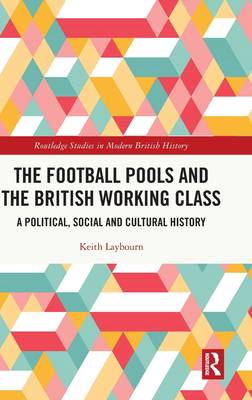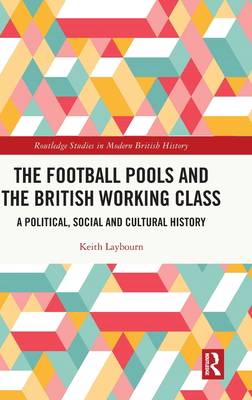
- Afhalen na 1 uur in een winkel met voorraad
- Gratis thuislevering in België vanaf € 30
- Ruim aanbod met 7 miljoen producten
- Afhalen na 1 uur in een winkel met voorraad
- Gratis thuislevering in België vanaf € 30
- Ruim aanbod met 7 miljoen producten
The Football Pools and the British Working Class
A Political, Social and Cultural History
Keith LaybournOmschrijving
This book is the first national study of the football pools in Britain which examines the politics and culture of the gambling on the football pools. It charts the rise of the football pools, focusing upon its rapid growth from the 1920s and its prolonged decline in British culture from the 1990s, partly as a result of the National Lottery. The book explores how this new gambling activity became a significant leisure opportunity for the working class - a way to feel that the individual skill of the punter could lead to the winning of some life-changing jackpot cheque being presented by a sporting personality of celebrity. Dominated by Littlewoods, and other large commercial companies, the weekly filling-in of the coupons was considered to be a safe form of investment, guaranteed by the integrity of the pool companies, rather than some seedy gambling operation.
The Football Pools and the British Working Class looks at different elements of the football pools from what attracted people to this form of gambling to how the industry developed and adjusted to the suspension of the football fixtures in 1936, and the bad winter of 1962-3. Above all, it examines the deep hostility that surrounded the filling in of the football pools arising from the National Anti-Gambling League, religious groups, the football authorities and MPs.
This book will appeal to all those interested in the history of British football and 20th century British working class culture.
Specificaties
Betrokkenen
- Auteur(s):
- Uitgeverij:
Inhoud
- Aantal bladzijden:
- 236
- Taal:
- Engels
- Reeks:
Eigenschappen
- Productcode (EAN):
- 9780367701727
- Verschijningsdatum:
- 22/07/2022
- Uitvoering:
- Hardcover
- Formaat:
- Genaaid
- Afmetingen:
- 156 mm x 234 mm
- Gewicht:
- 526 g

Alleen bij Standaard Boekhandel
Beoordelingen
We publiceren alleen reviews die voldoen aan de voorwaarden voor reviews. Bekijk onze voorwaarden voor reviews.







